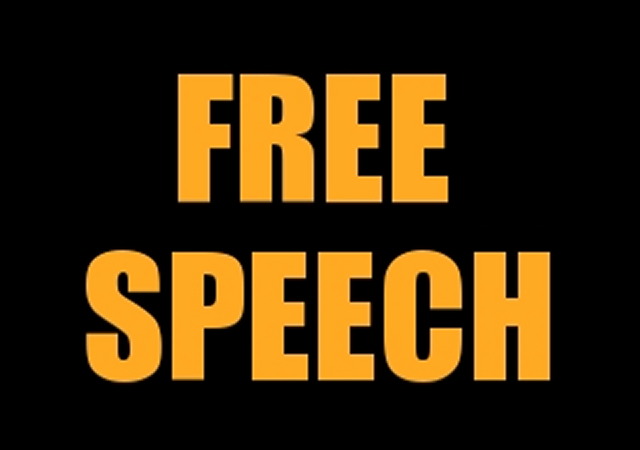University of Washington Law School Wants to Police What Students Say on Social Media
“Social Media Guidelines”

What business is it of the school what students talk about on social media?
Campus Reform reports:
UW law school wants to tell students what to say on social media
The University of Washington School of Law is proposing new “Social Media Guidelines” that urges students to “not post anything that could be viewed as discriminating in any way regarding race, ethnicity, religion, gender, gender identity, sexual orientation, and physical/mental disabilities.”
The guidelines, obtained by Campus Reform, list several “Best practices for social media,” which states that “Discriminatory harassment and sexual harassment are prohibited.” The guidelines also tell students, “Do not post anything that could be viewed as discriminating in any way regarding race, ethnicity, religion, gender, gender identity, sexual orientation, and physical/mental disabilities.”
The document also refers to the Student Conduct Code, which, if violated, can result in students receiving sanctions.
The guidelines tell students to “think twice before posting” as well, adding that “privacy does not exist in the world of social media.”
“Search engines can turn up posts years after they are created, and comments can be forwarded, photographed, and copied. Even deleted posts can exist in perpetuity. If you would not say it at a conference, in a classroom, or to a colleague, consider whether you should refrain from posting it online. If you are unsure about posting something or responding to a comment, step away from your device and take a break before posting,” the proposed guidelines state.
 DONATE
DONATE
Donations tax deductible
to the full extent allowed by law.









Comments
You’d think the administration of a law school would have some knowledge of applicable law. I guess that’s asking too much.
When I was in law school, this would be considered a joke, something laughable, a prank by a ConLaw prof. But now…….
‘Harassment’ has many definitions. The NYS Criminal defines harassment very narrowly and reflects the traditional notion. In Davis v. Monroe County Board of Education, the US Supreme Court defined harassment for Title IX purposes as “so severe, pervasive, and objectively offensive, and that so undermines and detracts from the victims’ educational experience, that the victim-students are effectively denied equal access to an institution’s resources and opportunities.” Colleges should honor the First Amendment and not step in until that point is reached. The First Amendment does not stop at the school house gate, nor does it stop at the student’s off-campus use of social media.
They’re protecting their budding leftie lawyers from being found out by the wayback machine. “Step away from your device!”
That seems like wise counsel to me, and it is simply a set of proposed guidelines. What am I missing here?
There’s the little matter of the 1A. Then there’s the little matter of vague terms such as “harassment” and “discrimination.” Then the fact that the Student Conduct Code are being dragged in shows that they are more than mere “guidelines.”
Because they are proposing to “criminalize” off-campus social media postings as violation of their Code of Conduct. They are using the impermissibly vague standard of “viewed as discriminating in any way regarding race, ethnicity, religion, gender, gender identity, sexual orientation, and physical/mental disabilities.” So, suppose I post a series of tweets attacking Joe (another student). That could constitute ‘harassment’ of Joe. Suppose I post a series of tweets criticizing how BLM spends their donations. A complainant would claim that the tweets discriminiate regarding race, and seek to haul me into a judicial proceeding.
Sounds very much like the advice I gave my children regarding things posted on social media. Not sure why this seems controversial.